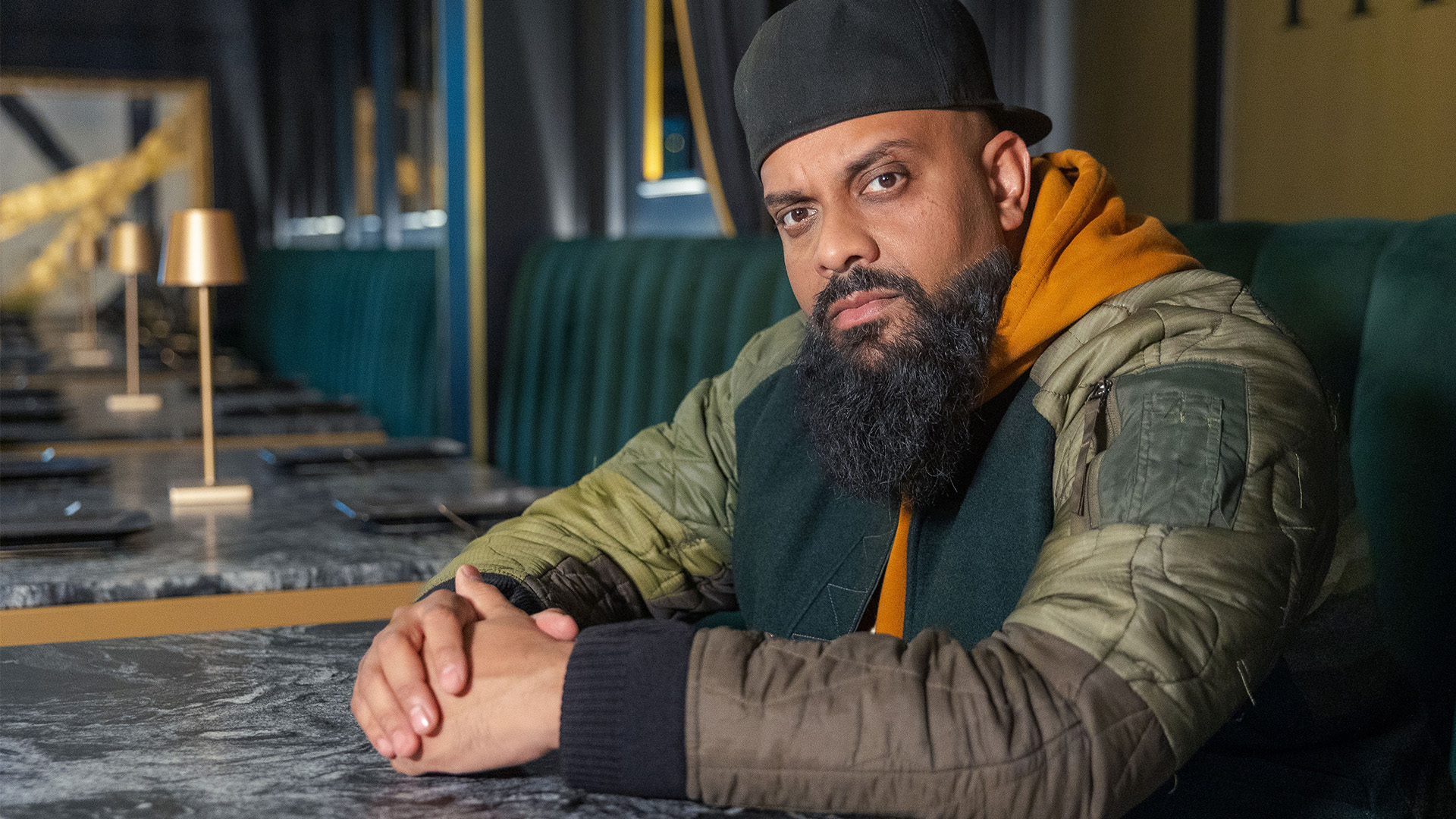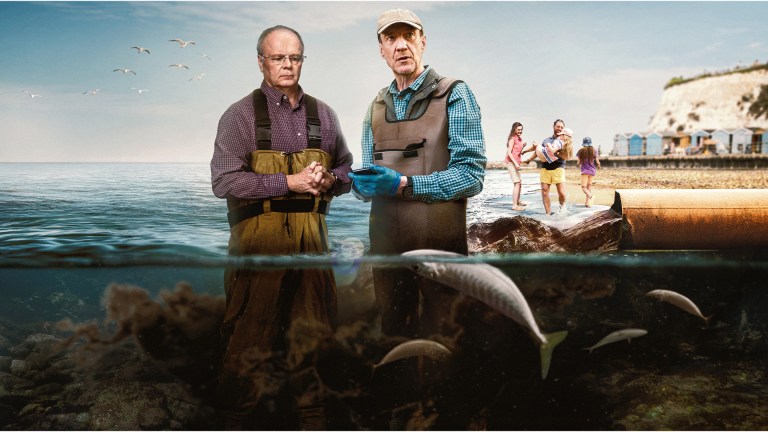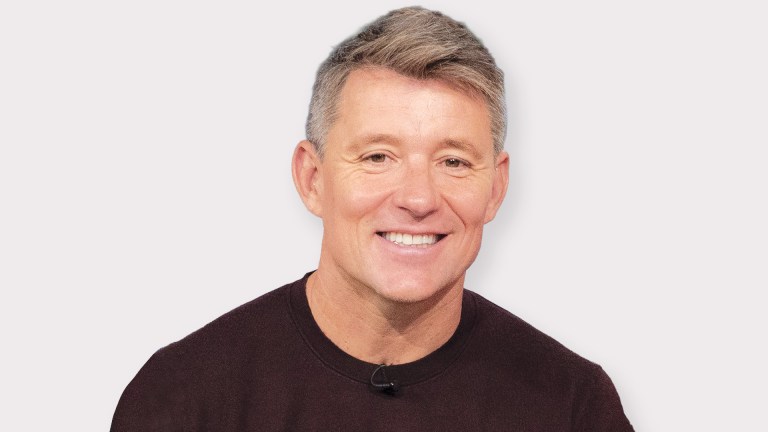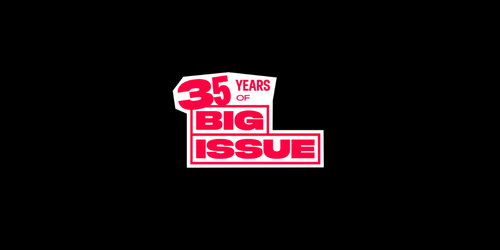It’s an important conversation to have. My financial life changed. Growing up in Coventry there was my mum and two older sisters and there wasn’t any money. There were times my mum had to work really hard. Too hard. And so to be able to say to her that, as it stands now, nine years later, she doesn’t ever have to worry about that again is crazy. I feel very blessed. But I never changed my social circle. I never changed my friendships. The streets I grew up on, I’m still on them every week. One thing I’m always surprised by is when people say, what are you doing here? Like they’re surprised. But this is where I’m from. I think it’s part of being working class in this country, the system always tells you that if you do well, you should get out and never come back.
Was there a big film that stayed with you from your childhood?
I mean, only the greatest movie ever made, The Goonies.
What about a big album or artist growing up?
People always cursed me about it but I really liked Oasis. They were like, why listen to all them gentle songs, bro? But Oasis had an impact alongside The Chronic 2001 (by Dr Dre) – it was quite juxtaposition different types of music.
What do you see as a defining event of your youth?
Advertising helps fund Big Issue’s mission to end poverty
The thing immediately coming to mind are the fights and the window breaks. One thing that stands out was we were playing cricket in Hillfields, behind my auntie’s house. It was a good road for playing cricket. There was a geezer called Fat Saj. And for obvious reasons, now, Fat Saj was a bully. He would throw that weight around. And he was hitting all of us on our ankles with a wicket. I tried to stand up to him and it didn’t go very well. He beat me up. And I went running back to my auntie’s house, which is literally 30 seconds away, crying. I was expecting love and a kiss and an ice pack. And she stood in the doorway and said you’re gonna go back and you’re not coming back until you feel better about what’s just happened or you win the fight. So I went back and had another little scrap. She taught me, in that moment, that you stand up to bullies. It’s been useful in this industry.
What was the big political issue you remember from your youth/childhood? How did it impact you?
It’s very pointed at the moment, but the Palestinian cause was something we were able to discuss with our teachers at school. And I’ll never forget that. It was an issue that wasn’t talked about in the community, but at school we would talk about it so much. Maybe because the West Midlands had a big Irish population and some of those Irish teachers were in school and it meant something to them. They wanted to explain to us about the theological elements mixing in our lives and it stuck with me. I get a lot I hate for it online.
But the very first people you trust is your teachers, right? History teachers. And when we were kids, they explained why the implications would be there beyond our lifetimes. And it always stuck with me – and I’m so proud of this country for that. Because there’s a lot of places you can go to school around the world where you’re not allowed to discuss things like that. And I love the fact that this country allows us to do that, whatever the headache or the heat that comes with it. That’s a core issue from my from my childhood that I’ve carried through to my adult life.
What do you want the big legacy of Man Like Mobeen to be?
We made it a priority that when we are in control of a project, we want to ensure people could give it a go. And what I love about the mentoring and training schemes we did over the last few series is that a lot of people found their feet and said, This is for me, this is something I want to do. And a lot of people were like, nah, man, I don’t want this stupid ass job. Because people in film and television in this country are dedicating their lives to this job. And they’re never given the praise or credit they deserve.
Advertising helps fund Big Issue’s mission to end poverty
So when it comes to legacy, I big up my brother Joe Lycett who shouted out the whole production and myself for doing the scheme and implemented it on his own show as well. When the few people in the industry from our kind of backgrounds can positively influence each other, that’s a beautiful thing. My promise is that as much as I can I’ll always try and facilitate this new generation to come in. They know they can always shout me.
And representing working class and Muslim Midlanders on screen as well?
You can be funny and also be real about the things you want to talk about. But only if people let you breathe. And so much TV isn’t like that. People ask why there aren’t more shows like Man Like Mobeen. Well, probably because people who wanted to make something like it were dictated to or leaned on or pushed too far to change things and do another rewrite and change the script or cast somebody different. But we always stuck to our guns.
Was there a moment where it felt like you’d hit the big time?
I remember walking into a room backstage somewhere and in the room was Anthony Joshua, Madonna and Salman Rushdie. I was like, I don’t know what kind of illuminati thing I’ve walked into here. It was such a funny combination of people in a room. Why were they there? And why were we there?
Who is the biggest name to tell you they are a fan of your show / music / film?
Advertising helps fund Big Issue’s mission to end poverty
A lot of people have reached out over the years. And I’ve got to work with people like Idris Elba and Pedro Pascal. When you turn up on set with someone like Pedro Pascal and he’s like, ‘I saw all the series of Man Like Mobeen’, it’s mental. But the person I’m most proud of, and who made me think I’m on the right track artistically, is Chris Morris. Not only is a cool guy, but it was quite early on in my career as well when he asked to meet up. For me, he’s the GOAT. I love him. I think everything he’s made is insightful and wonderful.
What is your current big issue?
Without a shadow of a doubt, just trying to amplify the plight of the people of Gaza and West Bank and amplify the people who want peace who are speaking out against regimes and policy that are for decade upon decade enacting this level of injustice. You’re playing with fireworks with this topic. I think people know from my personality that I’m a peaceful person. I would love to wake up tomorrow and see Jews, Muslims and Christians just living, bro. Just chilling.
But there’s a lot of things at play. The military occupation of the West Bank, the genocide in Gaza, for me to back down or be worried about the repercussions of speaking out about it is antithetical to what we stand for. Man Like Mobeen is a show where the characters never worried about speaking truth to power. So why would we do that in real life? We pray there’s peace on every side, for a world in which Israeli children and Palestinian children can be arm and arm. That’s the dream. And I know it might sound soppy or impossible, but I don’t agree. I think out of the most terrible situations flowers can grow.
And what is your big idea to save the world?
Have you heard about weed? It comes in edible form. You can smoke it. And it’s gonna chill everybody out.
Advertising helps fund Big Issue’s mission to end poverty
Is there a person or organisation creating positive change you want to give a big shout out to?
The Positive Youth Foundation in Coventry, run by Rashid. He was really important in my journey from being a criminal on the streets and he’s continued to be such a positive force in Coventry for young people in and around Hillfields. They’re all fantastic – Rashid, Obayed, Susie, Krish… and they don’t get the flowers they deserve.
What was your biggest dream and have you achieved it?
I suppose everybody’s dream is to leave a little something that people can remember you positively by. And very I feel very lucky, very blessed, because that’s happened. Far beyond my years, when we’re dead and gone, when someone does one of those weird review shows on Channel Five, Man Like Mobeen could be on there as something good…
The final series of Man Like Mobeen is on BBC3 on Thursday nights and available on iPlayer.
Do you have a story to tell or opinions to share about this? Get in touch and tell us more. Big Issue exists to give homeless and marginalised people the opportunity to earn an income. To support our work buy a copy of the magazine or get the app from the App Store or Google Play.
Advertising helps fund Big Issue’s mission to end poverty






